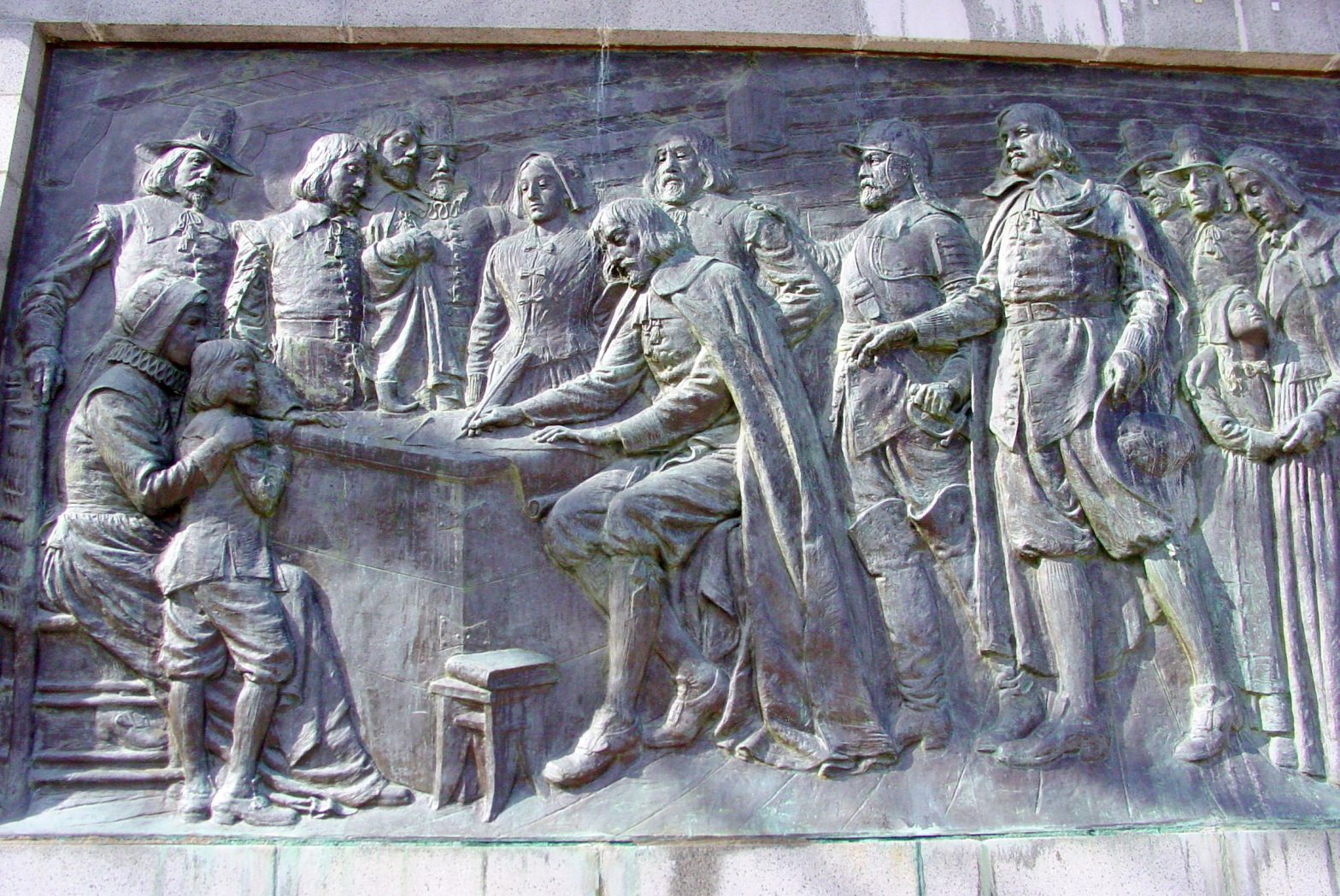On Nov 21, 1620, realizing that they had landed far north of their intended goal, which was the Colony of Virginia with its established connection to the British Crown, forty-one of the Mayflower’s 101 passengers signed the following agreement:
IN THE NAME OF GOD, AMEN. We, whose names are underwritten, the Loyal Subjects of our dread Sovereign Lord King James, by the Grace of God, of Great Britain, France, and Ireland, King, Defender of the Faith, &c. Having undertaken for the Glory of God, and Advancement of the Christian Faith, and the Honour of our King and Country, a Voyage to plant the first Colony in the northern Parts of Virginia; Do by these Presents, solemnly and mutually, in the Presence of God and one another, covenant and combine ourselves together into a civil Body Politick, for our better Ordering and Preservation, and Furtherance of the Ends aforesaid: And by Virtue hereof do enact, constitute, and frame, such just and equal Laws, Ordinances, Acts, Constitutions, and Offices, from time to time, as shall be thought most meet and convenient for the general Good of the Colony; unto which we promise all due Submission and Obedience. IN WITNESS whereof we have hereunto subscribed our names at Cape-Cod the eleventh of November, in the Reign of our Sovereign Lord King James, of England, France, and Ireland, the eighteenth, and of Scotland the fifty-fourth, Anno Domini; 1620.”
(Modern Version, Wikipedia https://en.wikipedia.org/wiki/Mayflower_Compact, cited November 22, 2023).
It’s useful to read this remarkable document closely. The Pilgrims were seeking a home where they would not be forced to be members of the Anglican church but be free to worship; nevertheless they acknowledge the king as Defender of the Faith. Their primary purpose was religious; the goal of bringing honour to King and Country is secondary. Finally, they were establishing a new and separate corporate entity, a “Body Politick”, to formulate the principles of government, promote explicit laws and regulations, and identify the duties of the administrators of this body. There was no mention of the British Parliament or acknowledgement of its authority. Given the distance in both time and nautical miles between Massachusetts Bay and London, self-governance was eminently practical and necessary
For about 130 years, from 1620 to about 1750, these policies governed the British colonies in America with relatively little interference from England. It wasn’t until the European wars of the mid-18th century, particularly the Seven Years War, spilled over into the colonies as the French and Indian War, that British authority and military presence in the colonies became a serious bone of contention. The Crown had spent enormous sums defending its colonies, and Parliament felt the colonies should help bear the burden through special taxes. It also was reluctant to withdraw British troops from the colonies, which it deemed still necessary not only to defend them but to keep them from increasing their independent self-government further.
Political discussions today often stray far from the actual documents or careful argument based on accurate interpretation of what these documents say, and what they meant at the time they were written. It behooves us as classical education teachers and students to pay attention to these details when we consider how to best constitute and carry out the “body Politick” in our own time.

